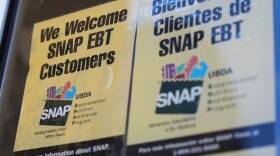The North Carolina State House has now passed a bill proposed in the Senate that would require each school district to offer in-person learning to students amid the ongoing COVID-19 pandemic.
Nearly all school districts have moved to provide in-person instruction in the past few months, but some ― around 10% of the state’s 115 districts ―had said they planned to stay in remote learning for the rest of the academic year.
Schools were first closed in March 2020 by Gov. Roy Cooper as the pandemic first caused deaths in the state. Since then, Cooper gave districts several options to continue providing learning in the 2020-21 school year starting in August, including Plan A which does not require social distancing, but does require mask wearing and other safety measures, Plan B which requires six feet of social distancing between students at all times, and remote learning.
Cooper left it to school districts, but set a limit to what they could do ― Plan A learning for elementary students, and Plan B for middle and high schoolers.
This bill passed by the Senate and House, which needs to be reconciled by the State Senate before going to the Governor’s desk, would require every district to have in-person learning, rather than leaving the decision up to local districts. Some districts decided remote learning was their best option because of staffing shortages that could be faced when trying to conduct school via hybrid learning, which includes teaching some students remotely and some in person, some days a week.
On Feb. 2, Cooper urged districts that had not begun planning to have in-person learning to do so. In the following days, the state’s two largest districts ― Wake County Public Schools and Charlotte-Mecklenburg Schools ― announced plans to resume in-person instruction this month following delays related to high community case rates following the winter holidays.
Leaders of the North Carolina Association of Educators pushed to stay in remote learning, citing instances where teachers were required to teach in-person despite being at high risk for complications with COVID-19, as reported by WUNC’s Liz Schlemmer.
After it became clear that in-person learning was part of the Governor’s plan, the NCAE asked for teachers to be moved up in the line to get vaccinated, since they would be required by the state to teach in person. Just this week, Cooper announced that educators and support staff would indeed be moved up in the line ― some will begin getting vaccinated as soon as Feb. 24.
Current differences between the House and Senate bill include a section in the House bill allowing teachers "reasonable accommodation" to teach remotely if they have a child who is at high risk for complications with COVID-19.
The Senate could vote on a compromised version of the bill as soon as Monday evening.
The bill would require school districts to provide in-person learning in 15 days after becoming law.
In discussion on the House floor Thursday, members said the bill could nullify the Governor’s ability to shut down schools due to COVID-19 if an outbreak of a newer strain of the virus, like those first seen in South Africa or Brazil which have been shown to spread rapidly, “takes over” the state. Instead, they said, the legislature would have to reconvene to close schools. Members said, however, that individual schools and school districts could shut down in person learning in cases of COVID-19 clusters or outbreaks.
Republicans who voted in favor of the bill in both chambers hold simple majorities, but it’s unclear if they would have the supermajority vote needed to override a veto from the Governor.












